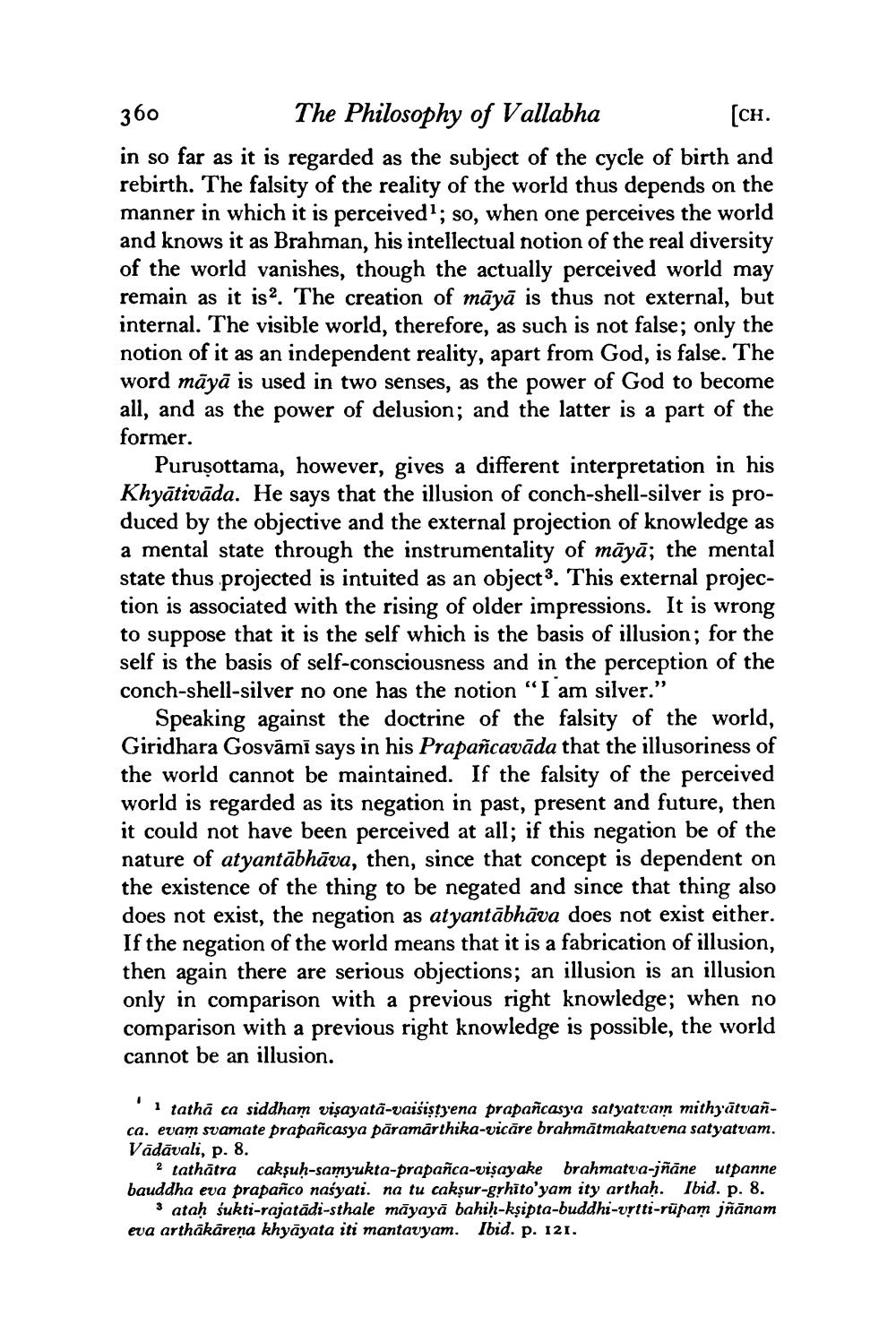________________
360 The Philosophy of Vallabha
[CH. in so far as it is regarded as the subject of the cycle of birth and rebirth. The falsity of the reality of the world thus depends on the manner in which it is perceived1; so, when one perceives the world and knows it as Brahman, his intellectual notion of the real diversity of the world vanishes, though the actually perceived world may remain as it isa. The creation of māyā is thus not external, but internal. The visible world, therefore, as such is not false; only the notion of it as an independent reality, apart from God, is false. The word māyā is used in two senses, as the power of God to become all, and as the power of delusion; and the latter is a part of the former.
Puruşottama, however, gives a different interpretation in his Khyātivāda. He says that the illusion of conch-shell-silver is produced by the objective and the external projection of knowledge as a mental state through the instrumentality of māyā; the mental state thus projected is intuited as an object 3. This external projection is associated with the rising of older impressions. It is wrong to suppose that it is the self which is the basis of illusion; for the self is the basis of self-consciousness and in the perception of the conch-shell-silver no one has the notion “I am silver."
Speaking against the doctrine of the falsity of the world, Giridhara Gosvāmī says in his Prapañcavāda that the illusoriness of the world cannot be maintained. If the falsity of the perceived world is regarded as its negation in past, present and future, then it could not have been perceived at all; if this negation be of the nature of atyantābhāva, then, since that concept is dependent on the existence of the thing to be negated and since that thing also does not exist, the negation as atyantābhāva does not exist either. If the negation of the world means that it is a fabrication of illusion, then again there are serious objections; an illusion is an illusion only in comparison with a previous right knowledge; when no comparison with a previous right knowledge is possible, the world cannot be an illusion.
i tathā ca siddham visayatā-vaisistyena prapancasya satyatvain mithyātvanca. evam svamate prapancasya paramarthika-vicare brahmätmakatvena satyatvam. Vädāvali, p. 8.
2 tathātra caksuh-samyukta-prapañca-visayake brahmatva-jñāne utpanne bauddha eva prapanco naśyati. na tu cakşur-grhīto'yam ity arthah. Ibid. p. 8.
3 ataḥ śukti-rajatādi-sthale māyayā bahih-kşipta-buddhi-urtti-rūpam jñānam eva arthākarena khyāyata iti mantavyam. Ibid. p. 121.




